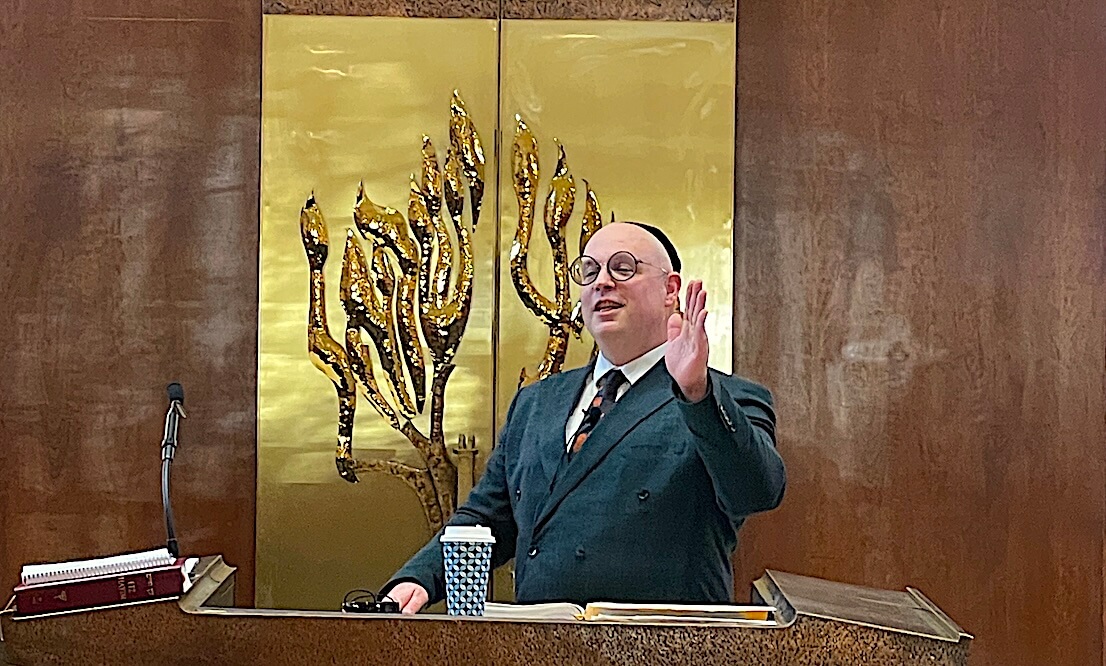Hey kid, do you want to be a rabbi? Facing a shortage, Conservative movement looks to teens
Only seven students have enrolled in the incoming first-year class at JTS, the Conservative movement’s rabbinical school in New York

Teens at summer camp. Photo by iStock
In response to a shortage, leaders of Conservative Judaism are asking the movement’s rabbis to encourage high school students to consider becoming rabbis themselves.
The Rabbinical Assembly, the movement’s umbrella group for rabbis, sent an email to 1,650 members last month asking them to keep an eye out for young people who show promise. Among its suggestions: that rabbis spending time at Jewish summer camps look out for candidates there.
“Plant the seed that religious leadership is meaningful and suggest they seriously consider it,” the email read. “For many of us, we didn’t come up with the idea to become clergy people on our own. Somebody suggested it to us. Please be a talent scout and seed planter and do that for young people this summer.”
The shortage of rabbis is evident at the Jewish Theological Seminary, the movement’s rabbinical school in New York. The class that just finished its first year has seven students. The incoming class also has seven students, though a seminary spokesperson said that number could rise before the next term begins.
The Conservative movement is not alone among streams of Judaism in its worries over a lack of rabbis, caused by a wave of baby boomer retirements and lower synagogue attendance, among other reasons. And the Reform movement has also seen its rabbinical school classes shrink. But Conservative Judaism’s dwindling cohort of rabbis-in-training has attracted particular concern. Last year Los Angeles’ Ziegler School of Rabbinic Studies, which is affiliated with the Conservative movement, slashed tuition by nearly 80% to attract more students.
‘Who would make a great rabbi?’
Rabbi Jacob Blumenthal, chief executive officer of both the movement’s Rabbinical Assembly and its major congregational organization, the United Synagogue for Conservative Judaism, said that up until recently the movement has talked much about the dearth of students in its rabbinical training programs.
Now, he said, it’s time to reach out to young people about a career choice they may not have considered.

“We have to start talking about the positives — how rewarding and meaningful a career the rabbinate is and to begin to think intentionally about who would make a great rabbi or Jewish leader,” Blumenthal said.
As part of its recruitment efforts, the RA is asking synagogues to present to teens at their b’nai mitzvah and in front of the entire congregation a $3,000 voucher for summer travel to Israel during their high school years. The funding is from a program called RootOne LLC that is seeded by The Marcus Foundation and was developed by the Jewish Education Project.
The students will be able to use this voucher for Israel summer travel on a program organized by United Synagogue Youth, an arm of the Conservative movement, or another RootOne approved program in 10th or 11th grade.
This is all an effort to “build our pipeline,” said Rabbi Ilana Garber, the RA’s director of Global Rabbinic Development. So far, she said, 90 rabbis have responded to the email and committed to work to recruit young people to the rabbinate and other leadership positions in the Jewish community.
Not just ‘synagogue skills’
Pulpit rabbis have also stepped up efforts to address the issue publicly.
Rabbi Elliot Cosgrove, spiritual leader of Park Avenue Synagogue in Manhattan, wrote in the spring issue of Sources, a Jewish journal: “The calling of the hour is to train a generation of rabbis, Jewish educators, and communal professionals with the spiritual, pedagogic, and practical skills to capture the hearts and souls of an American Jewry for whom Jewish affiliation is one of individual and voluntaristic choice.”
And during his weekly “Lunch and Learn” program last week, Rabbi David Steinhardt of B’nai Torah Congregation in Boca Raton, Florida, picked up on the same theme, telling his 85 participants: “We have a really big problem. This year the incoming JTS class has seven candidates — I said seven. When I applied to rabbinical school, there were about 150 people who applied and 20 people got in.”
Steinhardt went to JTS four decades ago.
He later said that he hopes his peers think broadly as they seek out younger congregants who might make for excellent rabbis.
“I’m not just talking about synagogue skills,” Steinhardt said. “I’m talking about kids who are articulate, insightful and have high emotional intelligence. Take them and mentor them.”
















